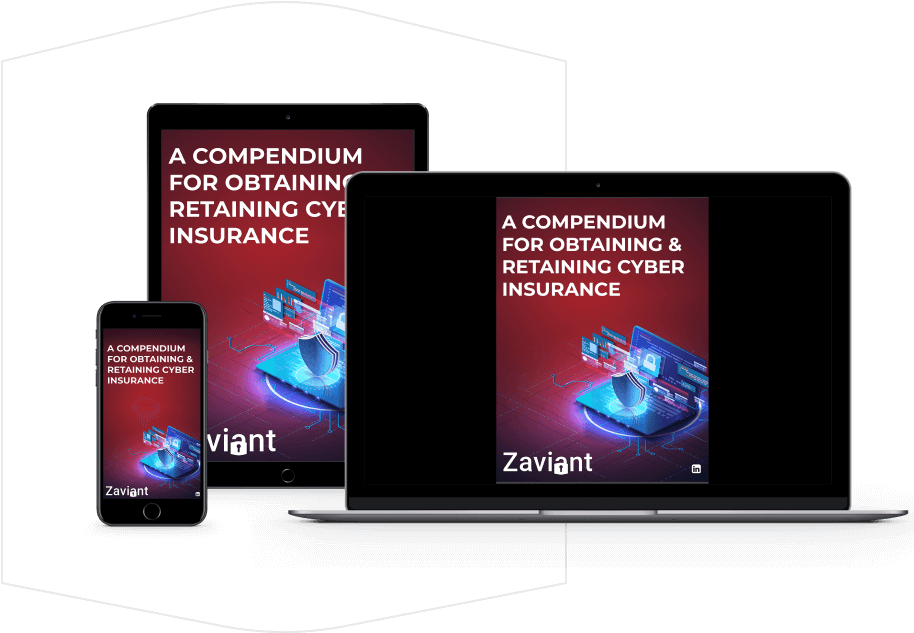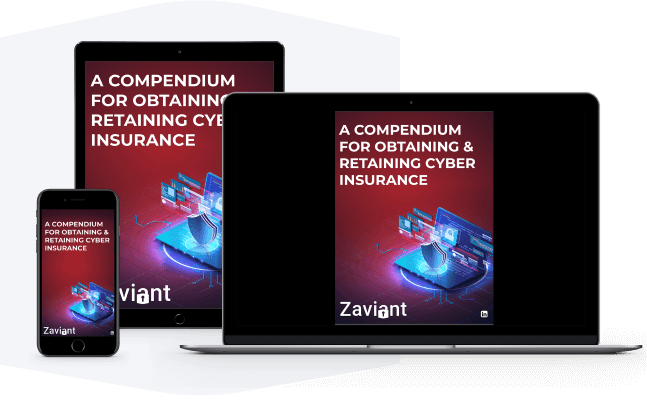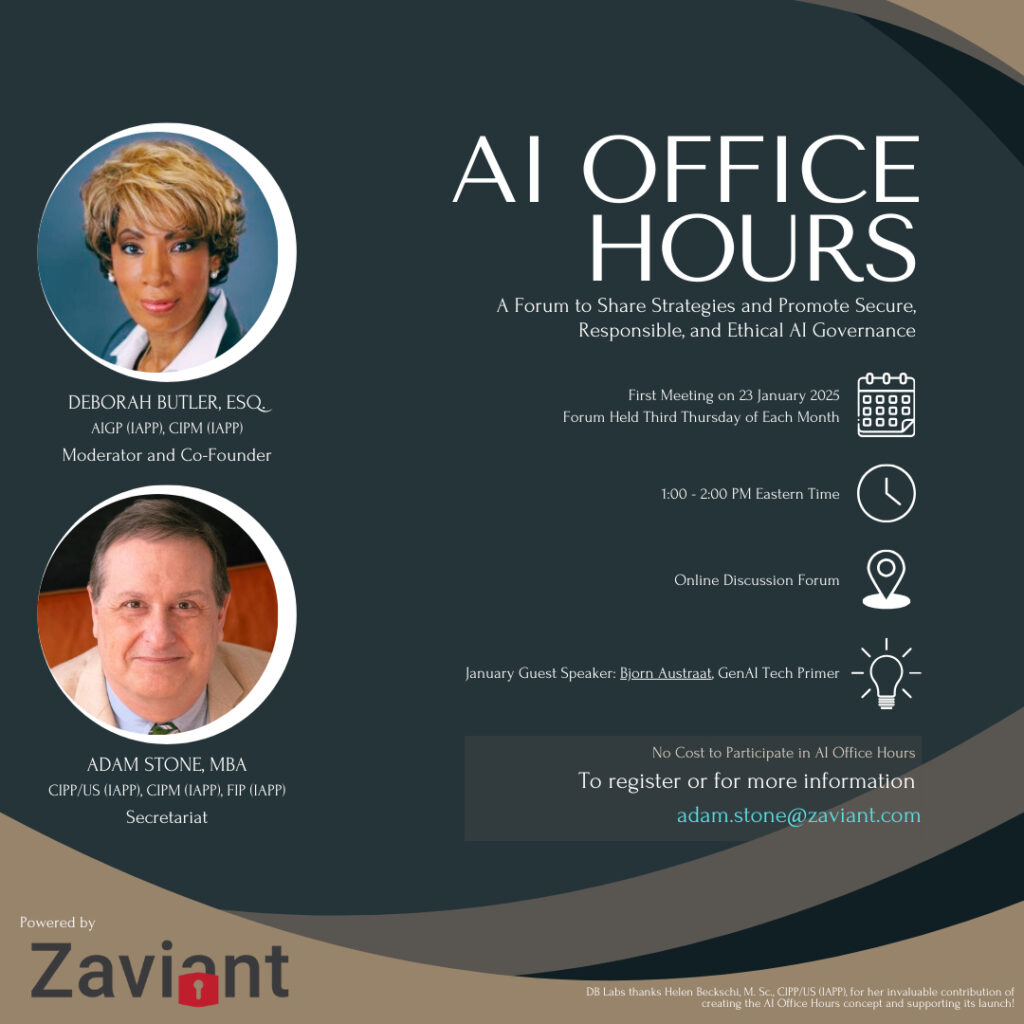Artificial intelligence (AI) has rapidly advanced over the last decade to a point where it can now outperform humans at tasks such as reading comprehension and image recognition.
- Cybersecurity Blog
9 Reasons to Hire a Virtual Chief Data Officer
-
By Zaviant

Long gone are the days where proper data management meant filing hard copy documents in the right folder in metal sliding file cabinets. So too are the days where data analysis involved a paper ledger and a calculator.
Today, data management goes beyond basic recordkeeping and analysis practices. It now involves not only collecting vital data points that underpin performance, but also meeting the latest data privacy standards.
As data is more complex and insightful than ever before, so too is its collection, interpretation, and management.
Without having a data expert by your side, there is a high chance you are letting valuable information slip through your fingers. You could be out of compliance with current laws and not know it.
A virtual chief data officer (vCDO) is that expert and can help your organization run more efficiently and seize new opportunities, but do so in step with the latest data privacy regulations.
What is a Chief Data Officer?
To understand what a virtual chief data officer is, it is important to understand the role and function of a chief data officer.
A newer job type based upon how business is conducted and regulated, a chief data officer (CDO), is a senior executive who oversees how an organization manages and maintains data. They also manage ethical and secure storage while addressing legal compliance matters, such as meeting data privacy and security regulations.
As more organizations are seeing the value of a CDO, the job itself has evolved with the times. Virtual chief data officers (vCDO) – CDO’s who work remotely and are hired as a contracted service provider – give organizations the benefits of a C-suite level data professional without absorbing all of the position’s overhead costs.
9 Reasons to Hire a Virtual Chief Data Officer
For any organization that collects and manages data, having a chief data officer – even one who works virtually – on their team is a wise investment. Not only does a vCDO corral your data, but they also help give your organization an edge over its competition through: :
- Implementing data privacy policies for compliance and data governance
- Using data to optimize processes and reduce costs
- Capitalizing on big data opportunities to create competitive advantage
- Managing and secure enterprise-wide data processing
- De-risk data-driven project management
- Building customer data sets through mining to create business value
- Ensuring data quality and transparency for risk management
- Using data to connect technology results with business results
- Determining data lineage via data mapping & inventory
Implementing Data Privacy Policies for Compliance and Data Governance
A vCDO ensures policies are in place to protect and define data privacy, which organizations need to prove compliance with policies and regulations such as the General Data Protection Regulation (GDPR) or the California Customer Privacy Act (CCPA).
Compliance and data governance are only becoming a larger concern for organizations of types and sizes. Governments at all levels are now implementing new data privacy regulations to protect consumers. Failure to meet these laws can mean steep fines and other penalties for organizations.
Use Data to Optimize Process and Reduce Costs
For any organization, data analytics can play an important role in forming a strategy around optimizing processes and reducing costs. A vCDO is responsible for overseeing an organization’s data analytics operations and finding ways to minimize expenditures for maximum gain.
For example, a deep dive into data related to warehouse operations may reveal inefficiencies that are easily corrected to minimize overhead.
Capitalize On Big Data Opportunities To Create Competitive Advantage
A vCDO receives and views the analytics of high-volume data sets, also known as big data.
Gathering extensive data sets provides important information about a target market shared by competitors. In order to capitalize on these opportunities, the data provided will help to understand the existing competitive gaps.
When used correctly, the proper analysis of big data can help an organization create a strategy for competitive advantage.
Manage and Secure Enterprise-Wide Data Processing Activities
Even though a vCDO is not a chief information security officer (CISO), they do work in tandem to develop effective cybersecurity protocols. Both roles aid in securing individual systems, applications, information, and networks.
A vCDO should be aware of how data security and privacy is throughout the enterprise for incident response, as well as business continuity and disaster recovery programs. They can then adapt data processing and gathering at all levels for the best protection.
De-Risk Data-Driven Project Management
Large infrastructure projects, such as a major construction project, involve a significant level of risk, with potentially major consequences including:
- Financial loss
- Environmental damage
- Diminished reputation
Some governmental projects can bring sharper attention from the public and can increase the risk of compromise throughout the decision-making process.
A vCDO uses a data-driven project management model (DDPM) to make recommendations against unrealistic targets, clarify requirements, and prevent poor alignment with the business.
Build Customer Data Sets Through Mining To Create Business Value
Sometimes a single set of data may not seem to be of much value as it lacks context – a log of employee time only show when they worked, and not what was accomplished. When combined with other sets of data, it tells a much different story.
As someone who gathers large sets of data, a vCDO can take otherwise innocuous data and turn it into something useful for an organization. Perhaps through customer data mining, a vCDO may discover a trend that can be applied to reach new prospects.
Ensure Data Quality and Transparency For Risk Management
A vCDO is responsible for the quality and interpretation of the data after it is gathered. High-quality data insights only come from analyzing the data from several angles. Looking at the data points with additional variables and different projection models, the vCDO can give you absolute transparency about what is happening in the field. An organization is able to make better decisions with greater risk tolerance.
Using Data To Connect Technology Results With Business Results
An investment in technology could pay immediate dividends depending on if it’s new or old. New technology can take time to show value, while older technology may be obsolete at its end of life.
Examining data, a vCDO can determine if an organization’s technology is equating to success and growth. If the data is unfavorable to the technology, the vCDO can take a deeper look to see if other factors are impacting performance.
Remember: not all technology packages support data gathering at levels needed to reveal key insights. The vCDO can help identify some of these blind spots when choosing technology.
Determine Data Lineage Via Data Mapping & Inventory
Data lineage tracks business and technical information from one touchpoint to another, end-to-end, for each transaction type, throughout the entire ecosystem.
A vCDO maps these data flows and tracks the metadata — actual tables, scripts, and statements, down to local copies of code found on an individual computer system. With this information, a vCDO can bring you greater insight into what is happening behind the scenes.
vCDOs: Harnessing the Power of Data
Assets are data and information created or used by an organization. As assets, these components need to be guarded, stored ethically, and cultivated for key business insights. Something small, like the price of cardboard, could be a source of overspending. Likewise, your company could move into slippery projects, creating more risk with little reward.
A vCDO will safeguard your organization against these risks while keeping your data within legal compliance. Working with a vCDO also gives your organization an edge in your future business decisions by using data to its full potential.
Does a vCDO Make Sense for You?
Book time with one of our experts today to discuss how our vCDO services can help your organization.
Share This Post
- Get The Latest In News & Insights
Explore solutions
Data Privacy, Security & Risk
Build or improve upon your data privacy policies and controls.
Platform Expertise
We tailors strategies to your unique risks and compliance needs, ensuring robust protection against cyber threats.
Regulatory Compliance & Frameworks
Zaviant's experts anticipate and mitigate cyber risks, safeguarding your data from diverse threats.








